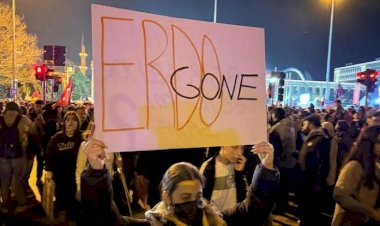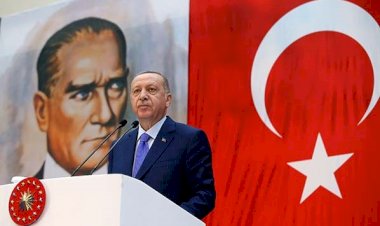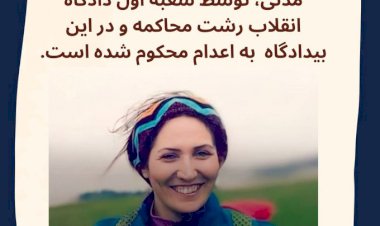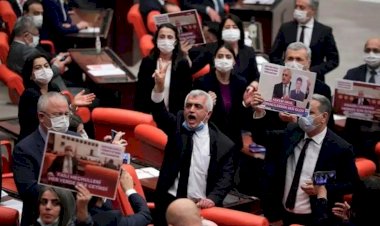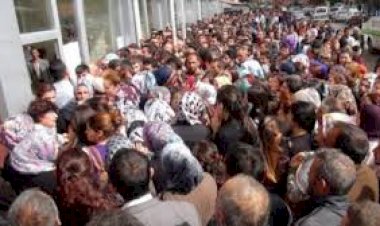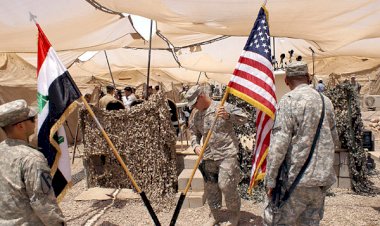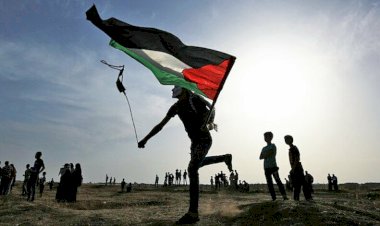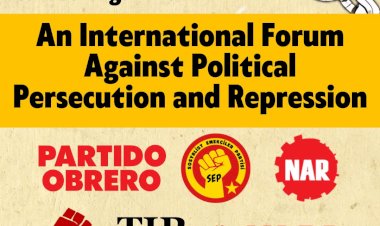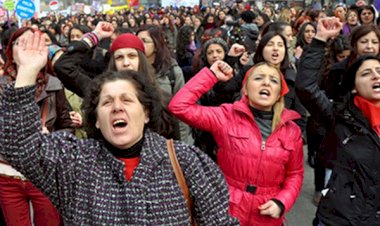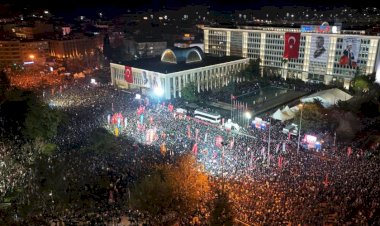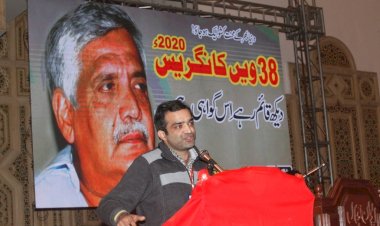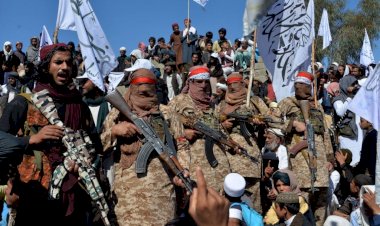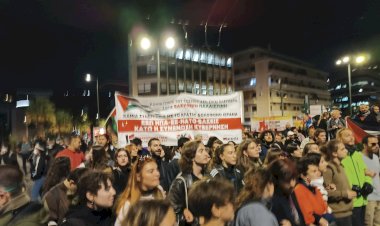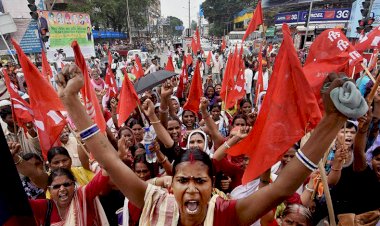Turkey’s Negotiation with Assad and Sub-Imperialist Desires
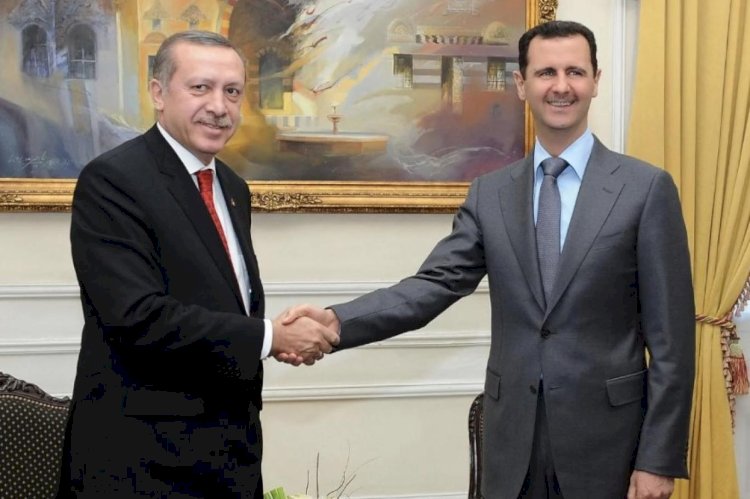
First, CHP sources announced that Özgür Özel would meet with Syrian President Assad. Then, a series of statements from the AKP followed one another about starting negotiations with Assad. The media is still creating the impression that if Syria and Turkey reach an agreement, the millions of Syrian refugees will return to their country and a joint military operation will be carried out in Kurdish land Rojava. These two expectations are not compatible with reality. It should be questioned whether AKP is approaching negotiations with Assad with the intention of finding a solution. Because negotiations only mean one thing for Assad, and that is the withdrawal of the Turkish Armed Forces (TAF) from Syrian territory and the end of support for jihadist organizations. Sounds realistic? For Erdoğan, the priority is the operation against Rojava.
What Will Syria’s Recovery Bring?
“We were not enemies with Syria, we were meeting with Assad as families.”…
President Erdoğan remembered after 13 years that he had met with Bashar Assad as families in the past, and felt the need to remind him. However, in 2012, the desires for conquest were reaching heavens: “God willing, we will recite the Fatiha at the grave of Saladin Ayyubi and pray in the Umayyad Mosque,” they said on the way to conquest.
In the civil war fanned with these desires; Syria was dragged into indescribable suffering, half a million people losing their lives. Cities were devastated, 13.7 million people were forced to leave their homes. 6.7 million of them fled the country, and more than half of this number came to Turkey. (“Number of Syrians in Turkey January 2022 – Refugees Association”. 21 April 2022)
Syria faced a flood of imperialist vultures. Turkey under AKP rule was the most important executor of the civil war. AKP may not have been able to overthrow Assad, but TAF has a military presence in 10% of Syria. The boutique jihadist state centered in Idlib and the rule of warlords in regions such as Afrin, Azaz, Cerablus, Tel Abyad, and Seraqaniye continue to exist with AKP support. TAF forces in the region are still the protective shield of these jihadists and warlords. An important fact should be emphasized at this point, Bashar Assad also knows very well that TAF does not easily abandon the regions they occupy through cross-border operations. We can also give examples of northern Cyprus, northern Iraq, and even Libya. In this case, it is not easy to assume that TSK under AKP command will withdraw from Syria.
In that case, it is quite understandable that Syria wants to start negotiations with Turkey to get rid of jihadist organizations and save her lands back. Assad's strong desire is the withdrawal of TAF from Syria and the cutting off of support given to jihadist organizations. What Erdoğan wants is for the Kurdish gains in Rojava to be destroyed. Although the topic of Syrian immigrants puts pressure on the AKP in domestic politics, that issue is quite complicated. For Assad, Rojava is the latter issue.
Can Sub-Imperialist Desires Be Restrained?
The financing of the de facto emirates in Syria is provided by Turkey; food, weapons and other vital needs are all from Turkey… The salaries of the militias are paid with our taxes. Of course, it goes both ways. The former FSA and other jihadists, who took the name of the Syrian National Army that holds these regions, participated as mercenaries in the cross-border operations of the TAF such as Libya. Furthermore, these formations were sent to the front line of conflict in the operations carried out against the YPG. It is planned that these formations will enter the front lines of conflict in the subsequent operations planned to target the YPG but for which permission has not yet been obtained from the US. It goes without saying that this mercenary service is an important imperialist gain. It is said that the Syrian National Army has around 80,000 to 100,000 militiamen. In addition, the tendency to protect/acquire northern Syria as Turkey’s backyard remains in place as a sub-imperialist impulse. It is known that the AKP is also ideologically close to these formations. As soon as these formations heard of the negotiation plans with Assad, they attacked the TAF’s points in Syria and intimidated Erdoğan. So, will these formations really be sold out, why is Erdoğan's search for an agreement with Assad coming to fore now?
The Real Concern is Rojava
The real concern behind the efforts to normalize with Assad is the elimination of the Syrian Kurds’ gains in Rojava. However, the administration in Rojava continues to exist under US military protection. Therefore, it is not possible for the TAF to cross the border and conduct military operations as they wish. For this reason, the AKP administration constantly pressures the US and tries to obtain permission for a military operation.
In that sense, the possible reapprochement with Assad is also a strong message given to the US. “If you continue to protect the YPG, I will try different paths with Putin-Assad,” they say. It is already known that the main force pushing the Erdoğan-Assad negotiations is Putin. For, if the Damascus administration liberates its lands in the north of Idlib and Aleppo, gets rid of the jihadist menace and establishes good relations with Turkey, this will be a victory not only for Assad but also for Russia and Iran. Then, pressure will intensify for the withdrawal of the US military presence from Syria and Iraq. The meaning of this is defeat of the US and Israel.
In fact, perhaps the US could have already withdrawn from the region but this plan was postponed because withdrawal would benefit Iran the most. Iran is likely to gain direct access to Israel via Iraq-Syria-Lebanon. During Trump’s presidency, he ordered US troops to withdraw from Syria in 2019, but the Pentagon, CIA and US State Department intervened immediately afterwards and had this decision reversed with difficulty. However, on the same day, the TAF carried out Operation Peace Spring with the support of the FSA and captured the Tel Abyad-Sarakaniye region. The TAF’s capture of the entire Rojava region was stopped by intense US threats and a preemptive move by Russia accompanied by Assad’s troops.
Lately, Erdoğan has the idea of creating an at least 30 km buffer zone along the Turkey’s border. Why wouldn’t the US approve this? If Erdoğan gets this concession from the US, he will lose interest in the idea of rapprochement with Assad. In this way, he will drive the YPG into the desert and feed the nationalism and increasing polarization in domestic politics. This indirect offer/blackmail to the US will also be acceptable for the US, as it does not contradict the US military control in the Iraq-Syria border region.
At this point, it is necessary to open a parenthesis and mention the US presidential elections. Because it is thought that if they enter with Biden, the Democrats will lose the election and a second Trump term will begin. It is known that Trump's approach to the region is much more preferable for Erdoğan. Influencing US policies and creating pressure by establishing good relations with Russia is the basic game principle of the AKP. The fact that the US allowed the operation in Afrin and the subsequent operations to be carried out in the past is promising for Erdoğan about the future. In other words, the main meaning of the negotiations that will begin with Assad for Erdoğan may be to get approval from the US for the cross-border operation.
Refugees
On the other hand, the issue of Syrian immigrants is quite complicated. AKP has to give the impression that it is dealing with the issue due to public pressure. But the AKP’s Islamist feelings aside, the Turkish capitalist system also needs an amount of immigrant labourforce. After all, such an extreme exploitation opportunity is not easily achieved. Refugee workers are seen as a solution for the aging population, and there are more and more people openly expressing this in capitalist circles. Under these conditions, sending “millions” of Syrian immigrants back to their countries is already impossible from economic, social and technical perspectives.
Let's say negotiations with Assad have been successful, in which case the jihadist networks will need to be liquidated. However, what will happen to the armed militias numbering in the hundreds of thousands after such an agreement? Will the rebel militias join Assad's security forces, as in Daraa, one of the southern centers of the Syrian civil war? But the number of militants in the north is incomparably greater than in Daraa. How will such a large number of militias be integrated into Assad's security forces? Would Assad accept this, and even if he wanted to, would he have the money to pay them salaries? Moreover, these people have large families.
Wouldn’t it be that the most plausible solution would be for these armed elements and their families to settle in Turkey. Furthermore, what will happen to the more strident jihadist organizations that receive support from Turkey but do not work directly with directives from Ankara? Salafi radicals such as HTS, formerly known as the Al Nusra Front, or the Turkistan Islamic Party have tens of thousands of professional armed men. These organizations hold strategic areas such as Idlib, Jisr al-Sughur and the Latakia countryside. These organizations will most likely not recognize the Erdoğan-Assad agreement and will not surrender the areas they hold to Assad's forces without a fight. This will mean a large wave of migration from regions where millions of people currently live (primarily Idlib) to Turkey. In an attempt to send Syrians back, new waves of migration may hit Turkey. In other words, Assad's goal of eliminating jihadist networks and Turkey's immigration issue do not seem to be very compatible! In which houses will millions of immigrants settle in Syria, which jobs will they go to, what kind of security will they have? Moreover, hundreds of thousands of young Syrians who were born and raised in Turkey will do their most to stay in Turkey or settle in Europe rather than return to Syria. Would these people want to go back from poverty to even more poverty?
Conclusion
Currently, the Turkish media is creating the impression that if Assad and Erdoğan reach an agreement, the migrants will return to their countries and a joint military operation will be carried out in Rojava. Both of these expectations are completely incompatible with reality. First of all, military intervention in Rojava is not possible while the US military presence is there. Therefore, it can be said that the AKP's main concern is not to make a real agreement with Assad but to juggle the ball and get approval from the US for a new cross-border operation.
On the other hand, Assad also wants to end the current Kurdish rule in Rojava, but first of all, the issue of the TAF and the armed groups it supports must be resolved. If this issue is resolved, Damascus will want to proceed with negotiations rather than weapons in Rojava as the next stage. They hope that the YPG, which has somehow lost US protection, will peacefully begin negotiations with the Damascus administration.
Not letting the oppressed Kurdish people breathe, making regime changes in neighboring countries, creating permanent occupation zones there, providing all kinds of support to jihadist gangs, inciting ethnic cleansing and slaughter are the manifestations of the sub-imperialist policy in our region. Class-conscious workers must oppose this policy and create an alternative political center in the Middle East based on internationalism and independent class politics. The imperialist capitalist system has no capacity other than constant war and slaughter. Therefore, there is no other intermediate path than the dilemma of "either permanent revolution or barbarism".



